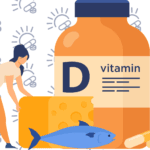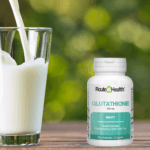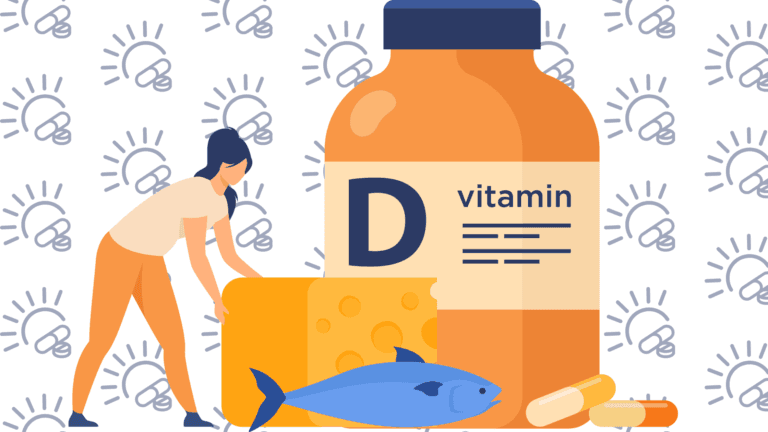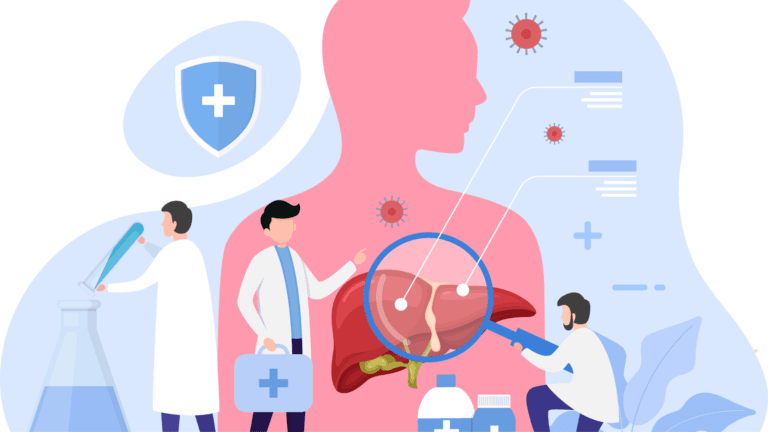
Berdi
urinary Track Health
As you age, your side drawer must be filled with all sorts of doctor prescriptions, medicines, and supplements. But one important thing that might be missing is CoQ10. The role of CoQ10 in the ageing process is remarkable, and you’ll be surprised to know how CoQ10 can help you age like a fine wine.
As your body undergoes a series of intricate changes, one key aspect that demands your attention is metabolism. The Role of CoQ10, or Coenzyme Q10, emerges as a remarkable player in this process, particularly in elderly individuals. This naturally occurring compound, found in every cell of our body, plays an indispensable role in maintaining healthy metabolism.
In this article, we delve into the multifaceted role of CoQ10, exploring its impact on energy production, the role of CoQ10 in mitigating age-related metabolic decline, and the potential benefits it offers to the elderly population.
Coenzyme Q10, often abbreviated as CoQ10, is a critical coenzyme present in the mitochondria, the energy-producing powerhouses of our cells. It plays a central role in the electron transport chain, an essential metabolic pathway that generates adenosine triphosphate (ATP), the primary energy currency of our cells. This process involves a complex series of reactions that require the involvement of various enzymes, with CoQ10 acting as a crucial electron carrier.
The Role of CoQ10 in energy production cannot be overstated. It shuttles electrons between different protein complexes in the mitochondrial inner membrane, facilitating the generation of ATP. This energy is indispensable for various cellular functions, including muscle contraction, nerve transmission, and the maintenance of basic metabolic processes. Without adequate CoQ10, our cells would struggle to produce the energy required to sustain life.
While CoQ10 is vital for energy production in people of all ages, its significance becomes even more pronounced as we grow older. Research has shown that CoQ10 levels tend to decline with age, making it one of the factors contributing to the ageing process.
Several studies have highlighted the age-related decline in CoQ10 levels in various tissues, including the heart, liver, and skeletal muscles. This decline is particularly concerning, as it coincides with a decrease in mitochondrial function and energy production, leading to decreased physical and cognitive vitality among the elderly.
The Role of CoQ10 in mitigating age-related metabolic decline is an area of active research, and the findings are nothing short of fascinating.
CoQ10 supplementation has been shown to enhance cellular respiration, a fundamental metabolic process that involves the conversion of nutrients into energy. By supporting efficient respiration, CoQ10 can help counteract the effects of age-related metabolic decline, ensuring that our cells continue to receive the energy they need to function optimally.
CoQ10 also boasts potent antioxidant properties, helping to protect cells from oxidative damage caused by free radicals. This is particularly relevant in ageing, as oxidative stress is a significant contributor to age-related metabolic dysfunction. By neutralising free radicals and reducing oxidative stress, CoQ10 can contribute to the preservation of metabolic health in elderly individuals.
The role of CoQ10 in maintaining cardiovascular health is vital. Research has indicated that CoQ10 supplementation can help reduce blood pressure, improve endothelial function, and enhance overall heart function. These effects are particularly beneficial for elderly individuals, as cardiovascular issues become more prevalent with age.
Age-related cognitive decline is a concern for many elderly individuals. The role of CoQ10 in supporting mitochondrial function and reducing oxidative stress may contribute to preserving cognitive function as we age. While more research is needed in this area, preliminary findings are promising.
Maintaining physical vitality is crucial for elderly individuals to lead an active and independent life. CoQ10 has been studied for its potential to enhance physical performance by improving muscle function and reducing fatigue. This can translate into greater mobility and a higher quality of life for older adults.
The antioxidant properties of CoQ10 not only benefit metabolism but also the overall health of elderly individuals. By reducing oxidative stress and inflammation, CoQ10 may help mitigate the risk of ageing-related chronic diseases, such as diabetes, arthritis, and neurodegenerative disorders.
Now that we’ve explored the vital role of CoQ10 in maintaining a healthy metabolism in elderly people, you might be wondering how to incorporate it into your daily life.
In the grand orchestra of life, the Role of CoQ10 emerges as a virtuoso player, ensuring that the symphony of metabolism continues to play harmoniously, even in the golden years of our lives. Its multifaceted significance, from powering cellular respiration to defending against oxidative stress, underscores its importance in maintaining vibrant health among the elderly. As we age gracefully, let us not forget the invaluable contribution of CoQ10 and the potential it holds to enhance the quality of our lives, one metabolic pathway at a time.











©2023 Route2Health®️
NTN: 2229383
AN ASSOCIATED COMPANY OF HIGHNOON LABORATORIES
STRN: 0301999937728

WhatsApp us
